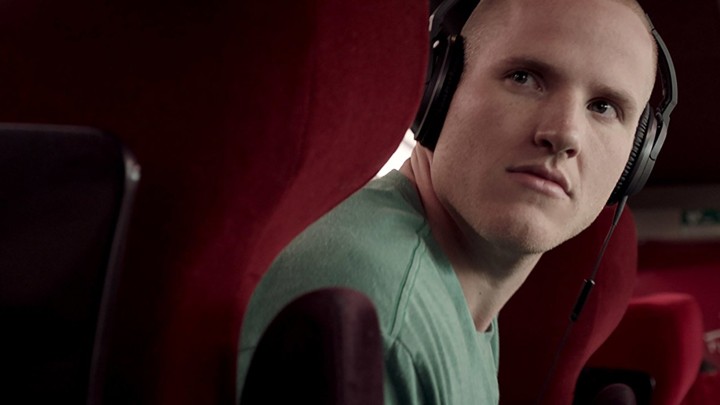?14 Cameras?: Some Movies Are Just Bad /newsite/026909_600.jpg" alt="14 Cameras 2018" />
In 2015, Victor Zarcoff's 13 Cameras gave audiences chills with its story of a creepy landlord spying on a young couple through the use of hidden cameras. 14 Cameras is a sequel that tries to build on this idea, using the same villain but having him do everything on a larger scale, with more potential victims, more obvious nastiness and more explanation. As so often when films take this route, something is lost in the process.
In this film, Gerald (Neville Archambault) rents out a holiday home, using a picture of a blandly smiling young woman as cover. "She seems nice," one soon-to-be tenant says, though there's never any evidence that Gerald has the communication skills to impersonate a friendly person online, and we've all lived with the internet for a little too long now for anyone to put much trust in a picture alone. In fact, familiarity with the internet is a big problem for this film, which relies on its characters' naivety and also pitches the dark web as the source of ultimate evil without anything to tell us why that evil would be interested in Gerald's tenants and not preoccupied with all the other much more extreme material available out there. The one balancing factor here is that Gerald himself may be less in control of his online dealings than he thinks.
14 cameras is at its strongest when depicting the conflicts that Gerald's behaviour, which quickly extends to stealing from his tenants and messing with their stuff, provokes between them. There's the potential here for interesting character drama and although there are no standout performances the actors still succeed in creating tension. Archambault himself struggles to do so, his character having lost much of his initial impact due to being robbed of his mystery. ?14 Cameras?: Some Movies Are Just Bad 's now reduced to the status of an ugly person - with thinning hair, bad skin and hunched shoulders - preying on the supposedly beautiful out of bitterness or spite. Any more complex motive has been dropped in favour of more shambling, wheezing and general misfortune cast as repulsiveness - something that smarter horror films were challenging as far back as the Forties. It's lazy filmmaking and, more to the point, it robs the story of power.
Also missing here, to the film's detriment, is Zarcoff's directorial skill. Newcomers Seth Fuller and Scott Hussion just don't have the same ability to generate atmosphere. The sharp editing that's vital to success where multiple scenes are shot from static camera positions isn't there either. Towards the end, when we step outside the frame of the house and the action is captured more fluidly, the film starts to find its own visual voice, but by this point it has squandered most of its opportunities and has to build up again from scratch.





:no_upscale()/cdn.vox-cdn.com/uploads/chorus_asset/file/10066945/the_guilty___still_1_24841600438_o.jpg)

